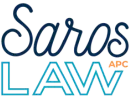Mental Health & Addiction Counseling & Placement
Mental Health & Addiction Counseling & Placement
Education law in California is heavily based on the notion that every child be protected from any harm or interference with their learning. Therefore, mental health is considered a very important factor in ensuring that access to education is promoted.
The Education Code 51900 depicts a scenario where the Instructional Quality Commission is mandated to consider developing and recommending the state board to adopt a unique category on mental health instruction to educate pupils about all aspects of mental health. During the normal course of recommending curriculum frameworks to the state board, the Instructional Quality Commission must ensure that an expert in the mental health and educational fields contributes to the development of the mental health instruction in the health framework. These experts should be sought from: culturally, racially, and ethnically diverse communities; representatives from all mental health professions; teachers; counselors; parents; individuals who are involved in promoting mental wellness and those living with a mental challenge and their families.
The Education Code 49429 stipulates that guidelines on or for the use of telehealth technology in public schools, including charter schools, be developed so as to provide mental and behavioral health services to pupils on school campuses. These guidelines should provide direction on the following:
- Qualifications of individuals authorized to provide assistance to pupils in accessing mental health and behavioral health services via telehealth technology at a school site
- Qualifications of those authorized to provide mental and behavioral health services to pupils via telehealth technology
- Probable sources of funding for the purchase of the essential equipment and technology infrastructure by schools to enable schools to offer telehealth services
- The ability of mental and behavioral health service providers to access reimbursement through the Medi-Cal program or other sources for services provided to pupils at school sites via telehealth technology
- The legal requirements for parental consent for the provision of mental and behavioral health treatment of minors vias telehealth technology
- Measures necessary to safeguard the security of data transmitted via telehealth technology
- Measures necessary to protect the privacy of pupil data and medical records
- A potential school district, county office of education, and charter school liability associated with the provision of telehealth services
The scope of mental health instruction
Mental health instruction shall include the following:
- Reasonably designed and age-appropriate instruction on the all-encompassing themes and core principles of mental health
- Explaining common mental health challenges such as depression, suicidal thoughts and behavior, schizophrenia, bipolar disorder, eating disorders, and anxiety, including post-traumatic stress disorder
- Expounding the services and supports that effectively assist individuals in overcoming mental health challenges
- Promoting mental health wellness, which comprises positive development, social connectedness, and supportive relationships, resiliency, problem-solving skills, coping skills, self-esteem, and a positive environment, both at school and home, or in which pupils feel safe and comfortable
- Capacity to recognize warning signs of common mental health problems so as to promote awareness and early intervention so that pupils understand to take action before any situation turns catastrophic
- The connection and significance of mental health to overall health and academic success as well as to coinciding conditions such as chronic physical conditions and chemical dependence, and substance abuse
- Cognizance and appreciation about the prevalence of mental health challenges across all populations, races, ethnicities, and socioeconomic statuses, including the influence of culture on the experience and treatment of mental health challenges
- The stigma surrounding mental health challenges and the measures that can be taken to combat stigma, increase awareness and promote acceptance.
Drug & Alcohol Support
Under Education Code 60111, the Department of Education ought to set up an information center of current alcohol, drug, and traffic safety education materials that may be used by school districts and teachers for instruction on alcohol, drug, and traffic safety education. The Code also stresses the importance of drug education as stipulated in Article 5. Section 51265 emphasizes the duty of the school districts and county offices of education to prioritize gang violence and drug and alcohol abuse prevention in-service training programs.
Suicide & Suicidal Ideation
Section 215 of the Education Code requires that the local agency’s governing body that serves pupils in kindergarten and grades 1 to 6 and those in grades 7 to 12 adopt a policy on suicide prevention at a regularly scheduled meeting. It further states that such policy be developed following consultation with school and community stakeholders, school-employed mental health professionals, and suicide prevention experts. The policy should address procedures relating to suicide prevention, intervention, and postvention. Moreover, it should address any training on suicide awareness and prevention to be provided to teachers of pupils in all the grades served by the local education agency. Click here for more information about Suicide & Suicidal Ideation.
Juvenile Mental Health Counseling & Placement
California has several Juvenile Mental Health Court (JMHC) programs that aim to redirect juvenile offenders from the Juvenile Justice System to appropriate mental health treatment. After an arrest, a minor with possible mental illness is screened for inclusion and referral to mental health court. The screening is done to determine the presence of any form of mental illness and the risk of substance abuse.
Depending on the preliminary results, the offender may be referred to a Juvenile Mental Health Court or a Juvenile Drug Court. Referrals to the mental health court are typically done systematically by the prosecutor, the defense attorney, and the probation officer.
Eligibility
Most misdemeanor and felony offenses qualify for diversion in a JMHC. The only exception is cases that involved violent crime and sex offenses. A California JMHC will also accept most clinical disorders like schizophrenia, anxiety disorders, and personality disorders.
Juvenile mental health programs are also discretionary. This means that participants and their families or guardians must consent to take part in the program.
Schedule a consultation with Saros Law APC
Call Saros Law APC at (310) 341-3466 for criminal defense assistance throughout the South Bay and Greater Los Angeles areas. Please fill out our contact form for new clients.







